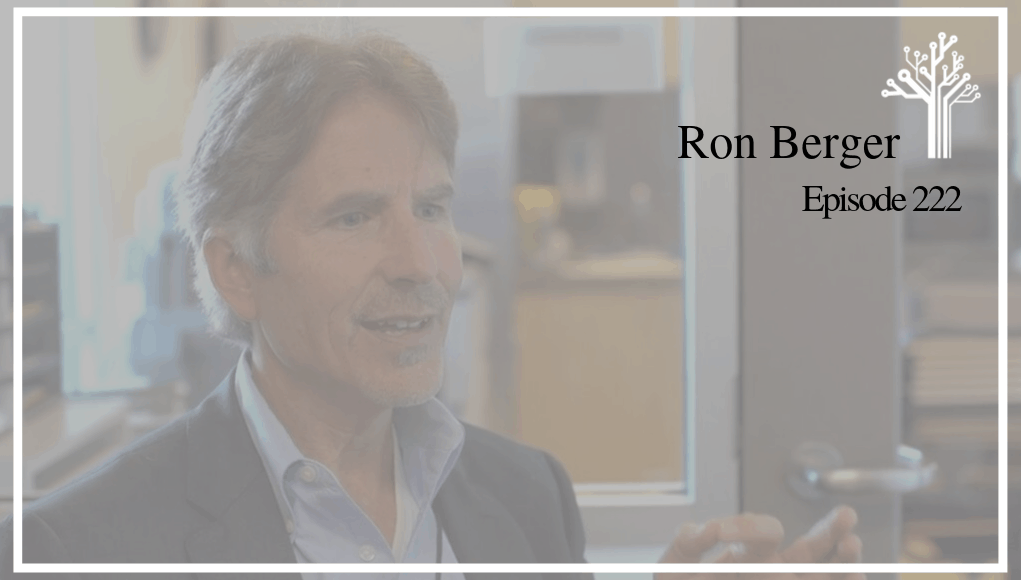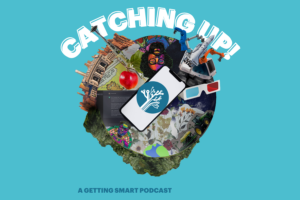Podcast: Ron Berger on Helping Students Become Leaders of their Own Learning

Halfway between Boston and Albany (as the Goose flies) is the little town of Shutesbury, Massachusetts. Just about everyone under the age of 50 in Shutesbury was in Ron Berger’s class at the local school. The fact that his nurse, plumber, and accountant had all been in his class helped him understand the bigger picture, it made him ask, “do they understand high-quality work, do they have courage, do they have quality values and use critical thinking? Would I trust my life to that person?
To supplement his modest income as a teacher, Ron Berger worked as a carpenter. After 25 years of swinging a hammer, he had built or repaired most of the town. The work gave him an appreciation of craftsmanship. “In the rush of schools to prep for tests, there’s nothing more important than craftsmanship…but the legacy of schools is a treadmill of assignments and assessments,” explained Berger.
He did his graduate work at Harvard where he began collaborating with Steve Seidel. They applied to become part of the New American Schools program in partnership with Outward Bound, a program focused on developing character through wilderness challenges, and Expeditionary Learning was born in 1993.
The project-based community connected school model, now called EL Education, blossomed into a 160 school network nationwide.
On Quality Work
“My deepest passion in education for 45 years has been collecting student work,” said Berger. His office and home are filled with bins of student work.
To help teachers develop a picture of what good work looks like, Berger and Sidel developed Models of Excellence in 2011. It’s a collection of the best math, science and writing project artifacts curated by EL and Harvard faculty. It includes hundreds of exemplary works p-12.
Berger sees students do world-class work in places where 1) there is a culture of respect and belonging, where students can be their true selves, 2) where work is meaningful and will make impact in the world, 3) where there are professional models of scientists, artists, politicians, professors that provide expert critique and guidance, and 4) where there is a real genuine audience.
“To do great work, we need to take risk, to be vulnerable,” said Berger.
EL Education launched a literacy curriculum in 2011 to increase impact at scale. Having receive the highest ratings from EdReports, the curriculum “Empowers kids to do more meaningful work together,” said Berger. It’s used by big districts including Wake, Charlotte Mecklenburg, Detroit and New York.
On the Character to Contribute
The EL character framework says, “We help students get smart to do good.” At the center of the framework is “contribute to a better world.”
Developed about a year ago and championed by Chief Knowledge Officer Beth Miller, the framework encourages the development of ethical people and effective learners.
Berger sees community contribution as a way to enlist energy and commitment from young people, “We need you, your community needs your help.”
Leaders of their Own Learning
 Berger published a beautiful book called Leaders of Their Own Learning in 2014. It layed out eight practices that makes students the locus of learning. It reached the teachers of more than one million students.
Berger published a beautiful book called Leaders of Their Own Learning in 2014. It layed out eight practices that makes students the locus of learning. It reached the teachers of more than one million students.
A sequel was recently released, The Leaders of Their Own Learning Companion. It is based on the same eight practices but includes more examples and tips.
Berger piloted the new book with teachers, leaders, and coaches across the country, and used their input to make it as clear and useful as possible for a range of educators.
For more, see:
- Why Career Exploration Must Be a K-12 Priority and One Way to Make It Happen
- Mastery Learning Objectives and Mastery Thresholds in the Classroom
- Build Support, Innovate, Repeat: Agile Public Education in Colorado
Stay in-the-know with innovations in learning by signing up for the weekly Smart Update.
This blog was originally published on Forbes.







0 Comments
Leave a Comment
Your email address will not be published. All fields are required.